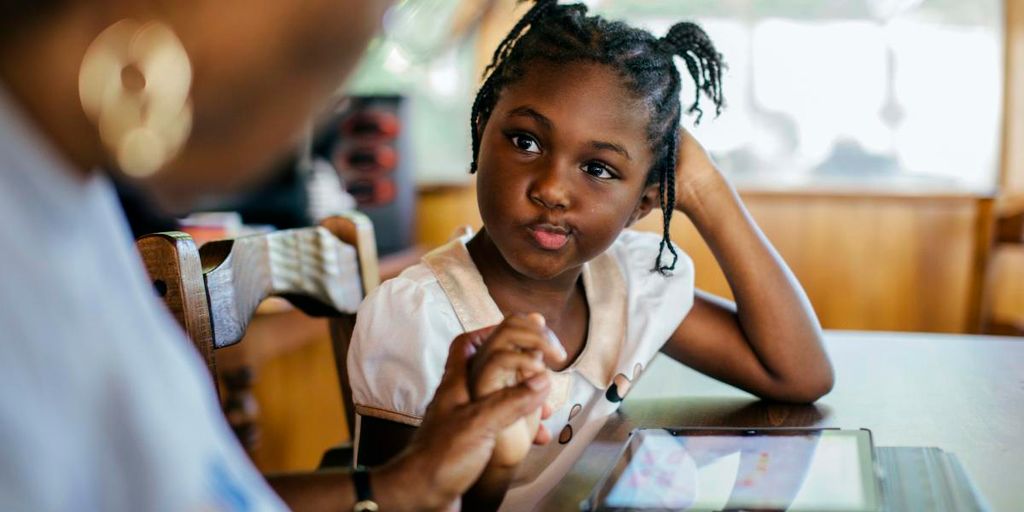
Learning doesn’t just happen in the classroom; it can take place right at home with the help of engaging and fun activities. As a parent, you play a crucial role in your child’s education, and the good news is that learning at home doesn’t have to feel like a traditional lesson. By incorporating educational activities into your daily routine, you can make learning an enjoyable and exciting experience for your child. Here are some innovative and effective educational activities to boost your child’s learning at home.
Key Takeaways
- Learning can be fun and engaging when incorporated into daily home activities.
- Parents play a vital role in their child’s education outside of the classroom.
- Interactive science experiments, creative arts, and reading activities can make learning enjoyable.
- Math games, nature exploration, and cultural activities offer diverse learning opportunities.
- Technology and physical activities can also be educational and promote overall development.
Interactive Science Experiments
Engaging your child in science experiments at home can be both fun and educational. Science experiments don’t have to be expensive, hard, or time-consuming. With a few inexpensive materials, you can bring science alive for your students.
Creative Arts and Crafts
DIY Art Projects
Engaging in DIY art projects can be a fantastic way for children to express their creativity. Creating something from scratch not only boosts their imagination but also enhances their problem-solving skills. Projects can range from simple finger painting to more complex tasks like building models or making collages.
Recycled Material Crafts
Using recycled materials for crafts is an excellent way to teach kids about sustainability while having fun. Items like old newspapers, cardboard boxes, and plastic bottles can be transformed into beautiful art pieces. This activity encourages children to think creatively about how to repurpose everyday items.
Seasonal Craft Ideas
Seasonal crafts are a wonderful way to celebrate different times of the year. From making holiday decorations to creating summer-themed art, these projects can make any season special. They also provide an opportunity for children to learn about various cultural traditions and festivities.
Crafting is not just about making art; it’s about developing patience, precision, and a sense of accomplishment.
Engaging Reading and Writing Activities
Starting a Family Book Club
Creating a family book club can be a wonderful way to bond and foster a love for reading. Choose a book that everyone can enjoy and set aside time each week to discuss it. This not only improves literacy skills but also encourages critical thinking and communication.
Creative Writing Prompts
Encourage your child to explore their imagination with creative writing prompts. These fun ideas can range from writing a story about a magical land to penning a letter to their future self. Writing activities for K-6 students can inspire creativity and enhance literacy skills.
Storytelling Sessions
Storytelling sessions can be a delightful way to engage your child in both reading and writing. Have them create their own stories and share them with the family. This activity not only boosts their confidence but also helps in developing their narrative skills.
These low-prep and engaging summer literacy activities can be sent home to keep students reading and writing even when they’re not in school.
Math Games and Puzzles
Number-Based Board Games
Number-based board games are a fantastic way to make math fun and engaging for children. Games like Math Bingo, Math Duel, and Prodigy can help reinforce math skills in an entertaining way. These games are perfect for creating an engaging atmosphere and helping kids build essential math skills.
DIY Math Puzzles
Creating your own math puzzles at home can be a fun and educational activity. Use everyday items like cards, dice, or dominoes to make practicing basic math facts entertaining. For example, have kids roll dice and then add or subtract the numbers. This hands-on approach can make learning math more interactive and enjoyable.
Interactive Online Math Tools
There are numerous online tools and apps designed to make math learning interactive and fun. Websites like Khan Academy and Cool Math Games offer a variety of activities that cater to different age groups and skill levels. These tools can be a great supplement to traditional learning methods, providing kids with additional practice and challenges.
Math games and puzzles not only enhance problem-solving skills but also boost attention to detail and promote patience and persistence.
Exploring Nature and the Outdoors

Exploring nature and the outdoors offers endless possibilities to engage children in learning. From building forts and exploring hidden trails to creating nature-inspired artwork and playing outdoor games, there are endless possibilities to engage kids with the natural world. Here are some activities to get started:
Nature Scavenger Hunts
Organize a nature scavenger hunt to make outdoor exploration fun and educational. Create a list of items for your child to find, such as different types of leaves, rocks, or insects. This activity not only enhances their observation skills but also teaches them about biodiversity.
Gardening Projects
Gardening is a fantastic way to teach children about plant life cycles and responsibility. Start with easy-to-grow plants like tomatoes or herbs. Involve your child in every step, from planting seeds to watering and weeding. This hands-on experience can foster a lifelong love for gardening.
Bird Watching and Identification
Bird watching can be a calming and educational activity. Equip your child with a pair of binoculars and a bird guidebook. Spend time in your backyard or a local park identifying different bird species. This activity can improve their attention to detail and patience.
With its ample green spaces, plentiful parks, and outdoor adventures galore, Atlanta has no shortage of fun things to do for active-minded families.
Cultural Exploration Activities
Introduce your child to the flavors of the world by cooking international recipes together. This activity not only teaches them about different cuisines but also about the cultures and traditions behind each dish. Cooking together can be a fun and educational experience that broadens their palate and understanding of global diversity. You can even make a fun vision board with images, songs, and drawings related to the country of the cuisine you’re exploring.
Dive into interactive experiences that celebrate diversity, traditions, and customs from around the globe. Language learning games and cultural quizzes can make this process enjoyable and engaging. Preschoolers can start with simple words and phrases, while older children can delve into more complex aspects of the language. This activity fosters an appreciation for different cultures and enhances cognitive skills.
Take advantage of technology to explore museums around the world from the comfort of your home. Virtual museum tours offer a unique opportunity to learn about art, history, and science from different cultures. This can be a great way to spark curiosity and encourage a love for learning. Check out your local library or community center for additional resources and activities related to cultural exploration.
Technology and Coding for Kids
Basic Coding Projects
That magical box on your desk is an open gateway to learning. Start the computer, then build a website. Although preschoolers are not the finest website designers, they are not too young to have their own website. They may tell you what they want to write about on their blog, shoot photographs for their site, and learn what it takes to make a website function properly with your assistance. You may rebuild the website with them as they become older and hand them the keys eventually.
Educational Apps and Websites
School-age children are ready to manage most of their own site, which will help improve their writing and thinking skills. You can also use their website to teach them how to stay safe online.
Building Simple Robots
Put learning in motion by playing games that get your kids moving while learning about a variety of subjects. For preschoolers, start with a basic game that helps him learn farm animals, numbers, colors (create a hue scavenger hunt!), and shapes. Adapt the game for school-age children to cover anatomy, world government, foreign language, and history. What you choose to teach with this game is only limited by your imagination. You can also explore educational apps together.
Physical Activities and Sports
Physical activities are essential for a child’s overall development, promoting both physical health and mental well-being. Here are some engaging ways to keep your child active at home.
Indoor Obstacle Courses
Creating an indoor obstacle course can be a fun and challenging way for kids to stay active. Use household items like pillows, chairs, and blankets to set up a course. This activity not only keeps them moving but also enhances their problem-solving skills.
Family Yoga Sessions
Yoga is a fantastic way to improve flexibility, balance, and concentration. Family yoga sessions can be a great bonding activity while promoting physical health. Start with simple poses and gradually move to more complex ones. Morning exercise helps kids focus at school and yoga can be a perfect start to the day.
Dance and Movement Games
Dancing is a fun way to get kids moving and improve their coordination. Whether it’s a choreographed routine or free movement to music, dance can be both enjoyable and beneficial. Consider incorporating games like "Red Light, Green Light" or "Simon Says" to make it even more engaging.
Regular exercise helps develop bones and muscles, promotes proper heart and respiratory system development, and improves overall physical health.
Conclusion
Incorporating educational activities into your child’s daily routine at home can be both fun and highly beneficial for their development. By transforming learning into an engaging and enjoyable experience, you can foster a love for discovery and knowledge that will last a lifetime. Whether it’s through playful learning games, creative arts and crafts, or hands-on science experiments, the opportunities to boost your child’s learning are endless. Remember, the key is to make these activities enjoyable and stress-free, ensuring that your child associates learning with positive and rewarding experiences. So, take these ideas and make them your own, and watch as your child thrives in a nurturing and stimulating home environment.
Frequently Asked Questions
How can I make learning fun at home?
You can make learning fun at home by incorporating games, hands-on activities, and interactive projects that align with your child’s interests. For example, play learning games like scavenger hunts, conduct simple science experiments, or create art projects together.
What are some easy science experiments I can do with my child at home?
You can try simple chemistry projects like baking soda and vinegar reactions, physics experiments using everyday objects like building a balloon rocket, or biology activities such as observing insects in your backyard.
How can I encourage my child to read more?
Start a family book club where everyone reads and discusses the same book, provide a variety of reading materials tailored to your child’s interests, and set aside dedicated reading time each day.
What are some creative arts and crafts activities for kids?
DIY art projects like painting and drawing, crafts using recycled materials, and seasonal craft ideas such as holiday decorations are great ways to engage your child in creative activities.
What types of math games and puzzles are good for children?
Number-based board games, DIY math puzzles, and interactive online math tools can make learning math fun and engaging for children.
How can I introduce my child to coding and technology?
Start with basic coding projects using kid-friendly programming languages, explore educational apps and websites, and consider building simple robots together to spark an interest in technology and coding.






